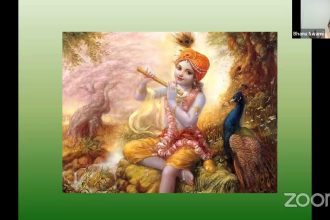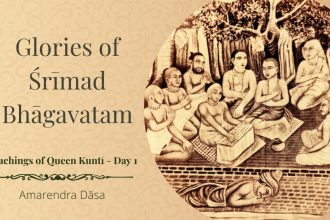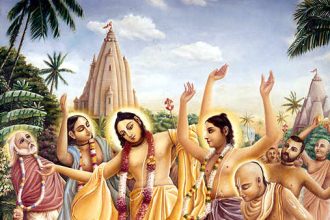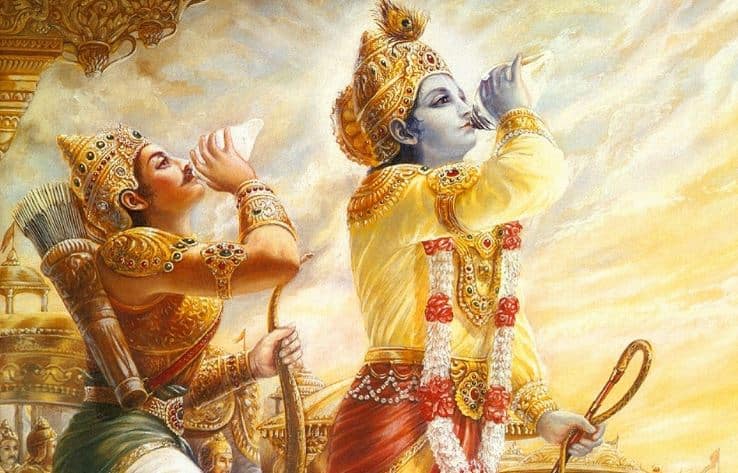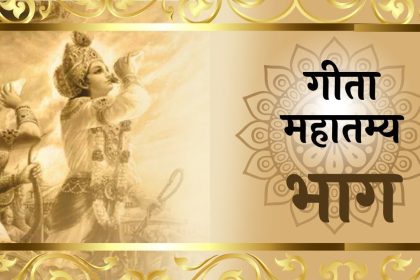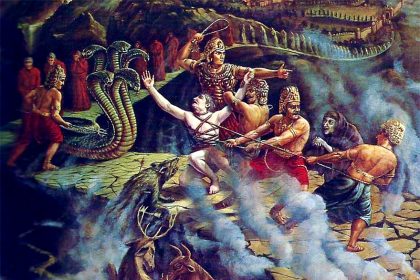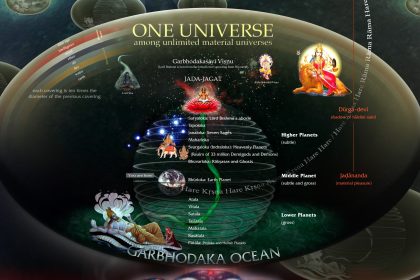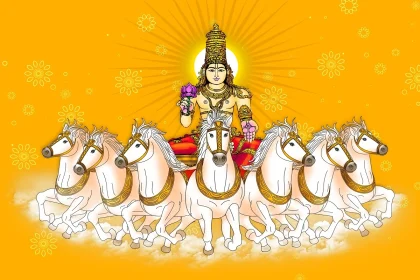TEXT 3
jñeyaḥ sa nitya-sannyāsī
yo na dveṣṭi na kāṅkṣati
nirdvandvo hi mahā-bāho
sukhaṁ bandhāt pramucyate
SYNONYMS
jñeyaḥ—should be known; saḥ—he; nitya—always; sannyāsī—renouncer; yaḥ—who; na—never; dveṣṭi—abhors; na—nor; kāṅkṣati—desires; nirdvandvaḥ—free from all dualities; hi—certainly; mahā-bāho—O mighty-armed one; sukham—happily; bandhāt—from bondage; pramucyate—is completely liberated.
TRANSLATION
One who neither hates nor desires the fruits of his activities is known to be always renounced. Such a person, free from all dualities, easily overcomes material bondage and is completely liberated, O mighty-armed Arjuna.
PURPORT
One who is fully in Kṛṣṇa consciousness is always a renouncer because he feels neither hatred nor desire for the results of his actions. Such a renouncer, dedicated to the transcendental loving service of the Lord, is fully qualified in knowledge because he knows his constitutional position in his relationship with Kṛṣṇa. He knows fully well that Kṛṣṇa is the whole and that he is part and parcel of Kṛṣṇa. Such knowledge is perfect because it is qualitatively and quantitatively correct. The concept of oneness with Kṛṣṇa is incorrect because the part cannot be equal to the whole. Knowledge that one is one in quality yet different in quantity is correct transcendental knowledge leading one to become full in himself, having nothing to aspire to or lament over. There is no duality in his mind because whatever he does, he does for Kṛṣṇa. Being thus freed from the platform of dualities, he is liberated—even in this material world.
TEXT 4
sāṅkhya-yogau pṛthag bālāḥ
pravadanti na paṇḍitāḥ
ekam apy āsthitaḥ samyag
ubhayor vindate phalam
SYNONYMS
sāṅkhya—analytical study of the material world; yogau—work in devotional service; pṛthak—different; bālāḥ—the less intelligent; pravadanti—say; na—never; paṇḍitāḥ—the learned; ekam—in one; api—even; āsthitaḥ—being situated; samyak—complete; ubhayoḥ—of both; vindate—enjoys; phalam—the result.
TRANSLATION
Only the ignorant speak of devotional service [karma-yoga] as being different from the analytical study of the material world [Sāṅkhya]. Those who are actually learned say that he who applies himself well to one of these paths achieves the results of both.
PURPORT
The aim of the analytical study of the material world is to find the soul of existence. The soul of the material world is Viṣṇu, or the Supersoul. Devotional service to the Lord entails service to the Supersoul. One process is to find the root of the tree, and the other is to water the root. The real student of Sāṅkhya philosophy finds the root of the material world, Viṣṇu, and then, in perfect knowledge, engages himself in the service of the Lord. Therefore, in essence, there is no difference between the two because the aim of both is Viṣṇu. Those who do not know the ultimate end say that the purposes of Sāṅkhya and karma-yoga are not the same, but one who is learned knows the unifying aim in these different processes.


